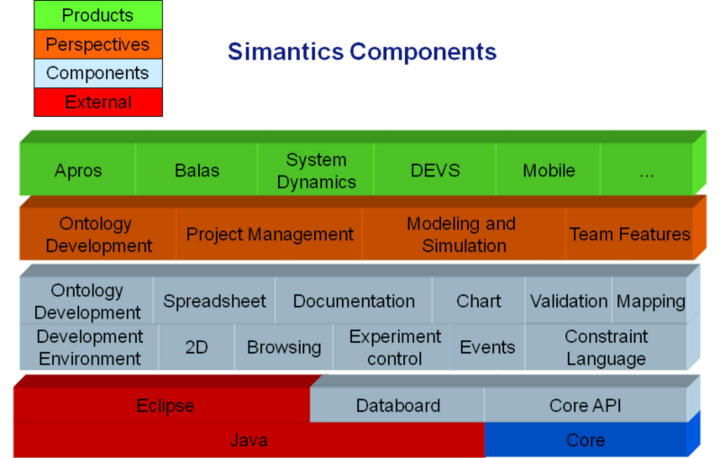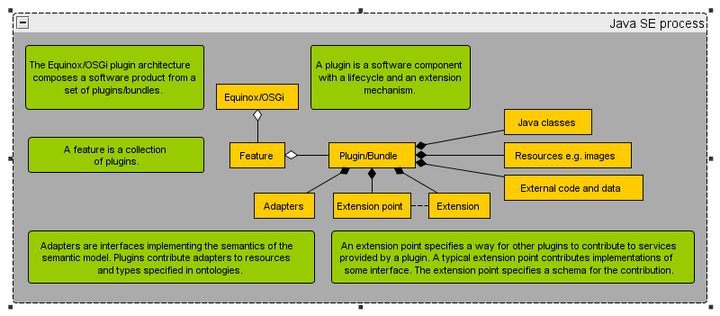Component View: Difference between revisions
No edit summary |
|||
| Line 25: | Line 25: | ||
== The plugin architecture == | == The plugin architecture == | ||
[[Image:SimanticsArchitecturePlugins.png|720px]] | [[Image:SimanticsArchitecturePlugins.png|thumb|center|720px]] | ||
Typical products in Simantics are running in OSGi environment. Such products are a collection of plugins from Eclipse, Simantics and the application. | Typical products in Simantics are running in OSGi environment. Such products are a collection of plugins from Eclipse, Simantics and the application. | ||
Revision as of 23:30, 14 October 2010
TODO: * component image and its imagemap need fixing * missing graphml source file for architecture image
The component stack
The stack of logical components is depicted below.

The plugin architecture

Typical products in Simantics are running in OSGi environment. Such products are a collection of plugins from Eclipse, Simantics and the application. The plugins are configured using features, which are sets of plugins with dependencies to other features. In addition to Java code typical plugins contain user interface resources and data, in some cases even native simulator executables and associated data files. The plugins can contain two important xml-files used to configure the system. The plugin.xml file configures Eclipse Equinox extensions, which are a generic contribution mechanism inside Eclipse. The adapters.xml file specifies links from semantic resources to Java interfaces. The current solution for adapter declaration and definition is specified in Resource Adaptation.
The current framework plugins are further documented in Plugins
The documentation for plugin development processes are Plugin life cycle